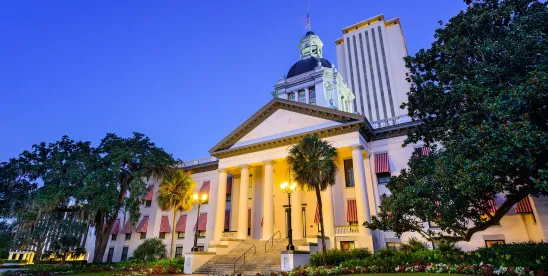After what must have been a grueling two-hour and 52-minute oral argument on the merits of a challenge to the FTC’s Final Rule banning noncompetes, Judge Timothy Corrigan of the United States Court for the Middle District of Florida issued a ruling from the bench in Properties of the Villages, Inc. v. Federal Trade Commission, Case No. 5:24-cv-316 granting the plaintiff’s Motion for Stay of Effective Date and Preliminary Injunction.
Importantly, as with the decision in the Northern District of Texas, the court limited the scope of the preliminary injunction to the named plaintiff only.
Judge Corrigan’s swift ruling granting the motion to stay at the completion of the hearing is a welcome decision given the looming September 4, 2024 effective date of the FTC’s noncompete ban. While the court rejected two of plaintiff’s arguments as to success on the merits, the court held that the FTC exceeded its authority under the major questions doctrine.
In particular, the court quoted Supreme Court precedent that “common sense, informed by constitutional structure, tells us that Congress normally intends to make major policy decisions itself, not leave those decisions to agencies[.]” Judge Corrigan considered the “huge economic impact” the Final Rule would have in transferring value from employers to employees, along with the Final Rule’s political significance preempting state competition laws. In finding that the plaintiff established a likelihood of success on the major questions doctrine, the Florida court has established a split from the Eastern District of Pennsylvania, which ruled in July that the FTC’s issuance of the Final Rule did not implicate the major questions doctrine.
In a colorful depiction of his view, Judge Corrigan borrowed from Justice Barrett’s concurring opinion in Biden v. Nebraska, analogizing the FTC’s authority to a babysitter’s: “’if a parent gives a babysitter a credit card and says ‘make sure the kids have fun while we’re out,’ the parent might expect that the babysitter would take the kids out for ice cream, but would not expect the babysitter to take the kids on an overnight trip to Las Vegas.’ Likewise, here: Without clear Congressional permission, the [F]inal [R]ule, the FTC’s equivalent of a trip to Las Vegas, is unauthorized.”
Notably, Plaintiff, Properties of the Villages, Inc. sought to stay the effective date of the Final Rule only as to the Plaintiff, as opposed to seeking a nationwide injunction.
The court’s decision to grant the injunction is more closely aligned with the decision in Ryan, LLC v. Federal Trade Commission that the Northern District of Texas issued last month and is in direct contradiction to the court’s decision in ATS Tree Servs., Inc. v. Federal Trade Commission which the Eastern District of Pennsylvania issued earlier this month. The parties in the Texas action have pending summary judgment applications, with the plaintiffs requesting vacatur. If granted, such vacatur should have nationwide effect under Fifth Circuit precedent, despite the narrower preliminary injunction that applied to the parties only. We expect that the Texas court will issue an order on the parties’ summary judgment briefing on August 30, 2024.
In the meantime, without a national injunction and with the Final Rule’s effective date of September 4, 2024 looming ever-closer, employers can start to “brace for impact” from the FTC’s Noncompete Ban by:
- Identifying senior executives[1] for whom the ban will not apply under the FTC’s Noncompete Ban.
- If not already a member of the U.S. Chamber of Commerce or one of the other intervenor organizations in the Ryan case, consider joining the organization to benefit from any rulings that will apply to their members by virtue of associational standing, given that the Ryan court intends to consider associational standing of the U.S. Chamber of Commerce’s and the other intervenor organizations’ members in its merits disposition.
- Consider making appropriate preparations if the FTC’s Noncompete Ban is not enjoined with respect to new hires and workers whose noncompete agreements will be invalidated.
- Evaluate adopting and bolstering alternatives to noncompetes such as “garden leave” provisions, enhanced confidentiality provisions, non-solicitation provisions, trade secret audits, and trade secret training programs.
- Consider beginning to prepare notices that will need to be issued to employees with noncompetes that are no longer enforceable and mailing lists for accomplishing that. If the FTC’s Noncompete Ban goes into effect, such notices will be due by September 4, 2024. That being said, employers should note that there is no private cause of action under the FTC’s Noncompete Ban (although some have suggested that an argument could be made for one under states’ “Mini-FTC Acts”), and the FTC can only obtain a cease and desist order from an administrative law judge should an employer fail to comply with the notice provisions (unless and until any employer violates such an order, in which case the FTC could seek penalties), so the risk of waiting until the Texas court’s August 30 ruling to begin that process, if necessary, is relatively minimal.
ENDNOTES
[1] A “senior executive” is someone who earns more than $151,164 per year and is in a “policy-making position,” i.e., they have final authority to make policy decisions regarding significant aspects of a business entity or common enterprise.





 />i
/>i
